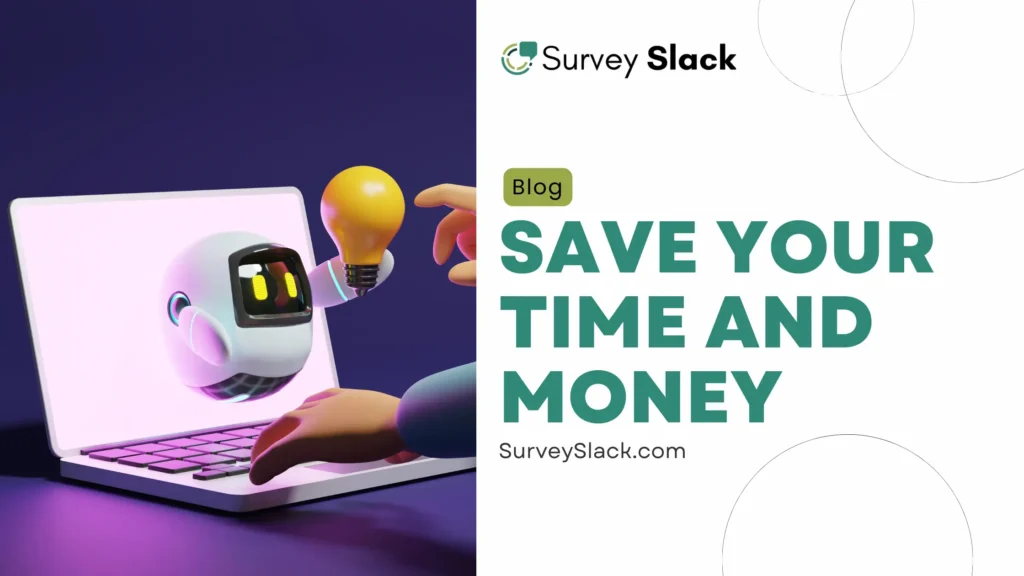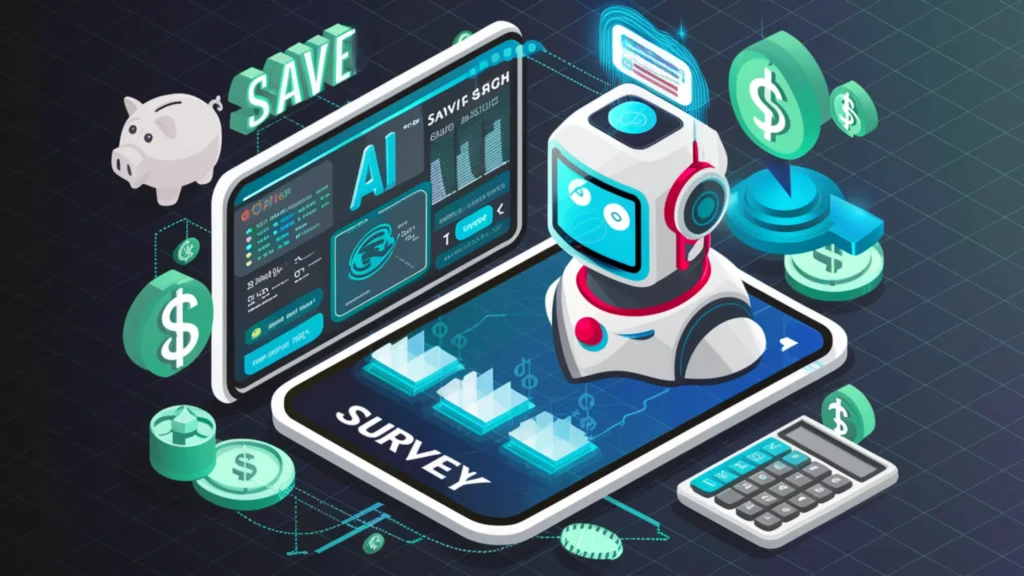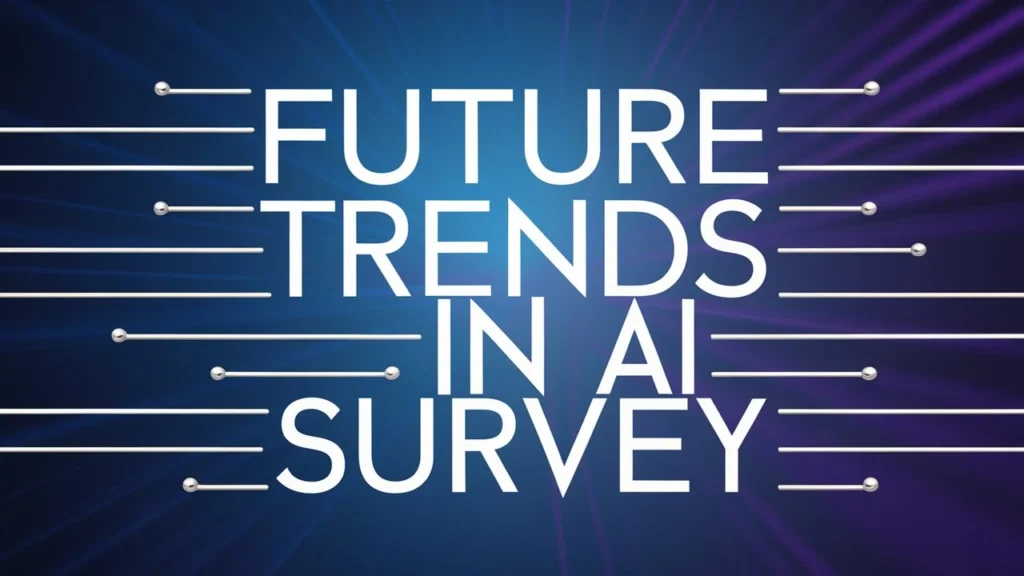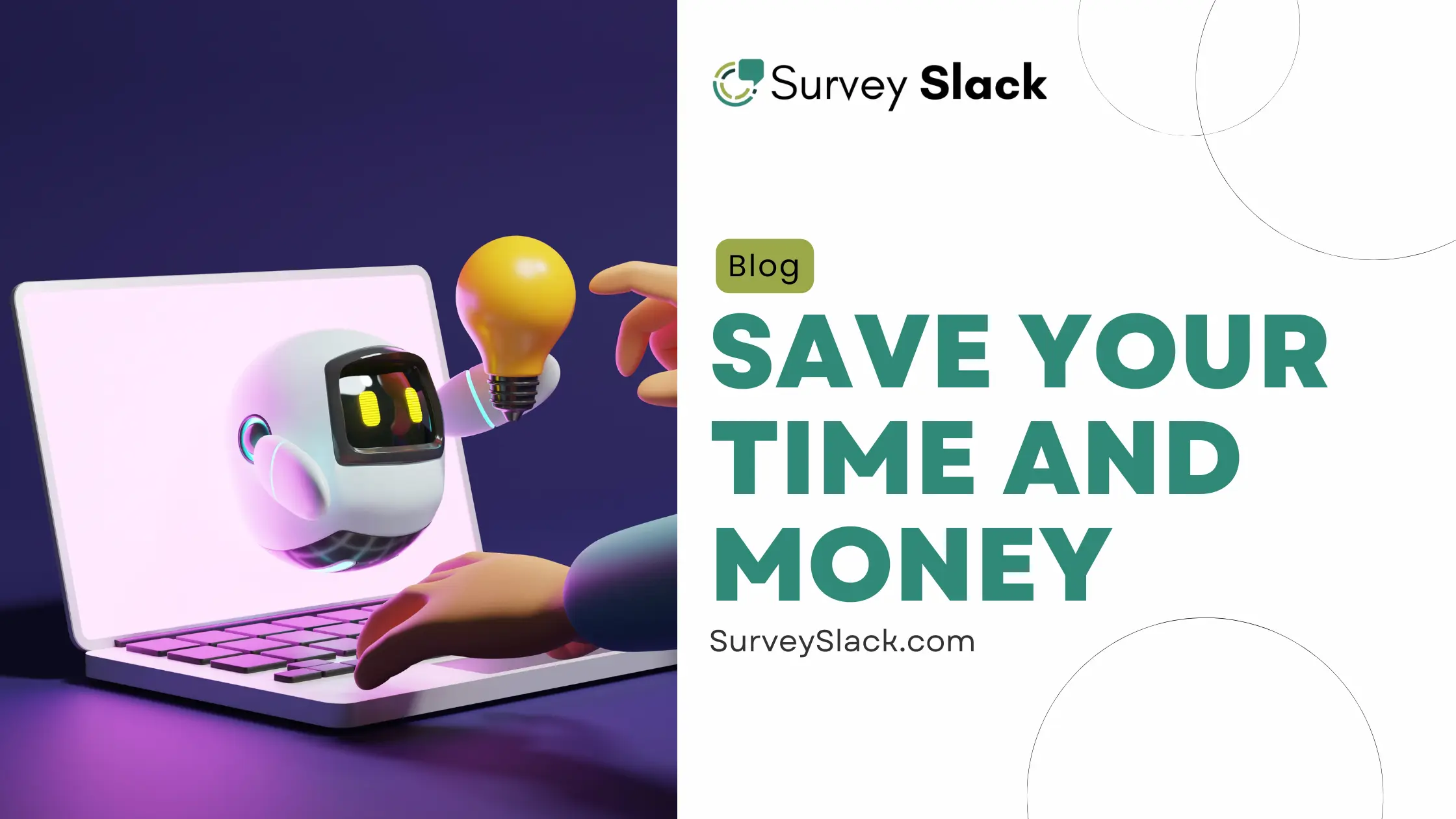How AI Surveys Can Save Your Time and Money

In this article, We are going to explore about AI surveys. Today’s fast-paced world requires insights from surveys. They are vital for businesses and organizations to stay competitive and relevant.
People have long used traditional methods to collect data. However, they often come with challenges. These can drain both time and resources.
However, technology has advanced, especially in artificial intelligence (AI). It has brought a revolutionary solution: An AI survey.
These surveys use AI algorithms to streamline data collection. They are a cheaper and faster alternative to traditional methods.
The way we gather information has transformed over time. Let’s look at this change. We’ll see how AI-powered surveys are revolutionizing the process:
The All-in-One Survey Solution You Need
Create professional surveys with ease
Table of Contents:
- The Evolution of Surveys
- The Role Of AI in Surveys
- How AI Surveys Can Save Time?
- How Online AI Surveys Save Money?
- Best Practices for Implementing AI Surveys
- Real-world Example
- Challenges and Considerations
- Future Trends in AI Surveys
The Evolution of Surveys
The way we gather information has transformed over time. Let’s look at this evolution. Let’s see how AI-powered surveys are changing the process.

Traditional Survey Maker Methods and their Limitations:
- These were time-consuming to distribute, collect, and analyze.
- Phone interviews were expensive. They were especially costly for reaching large audiences. They were also prone to bias.
- These methods had limited reach and speed for collecting data. They also allowed for biased responses.
Emergence of Online Surveys and their Impact:
- Online surveys were faster to deploy. They also reach more people and cost less than traditional methods.
- Made analyzing large datasets easier and quicker.
- While online surveys improved speed, they still needed manual effort. This effort was for design, distribution, and analysis. It limited their potential.
Introduction of AI Survey in Technology:
This is where AI steps in, revolutionizing the process:
- AI-powered survey creation makes question types engaging, finds biases, and optimizes flow.
- AI can target specific groups. This increases response accuracy and relevance.
- AI can do automated data analysis. It can analyze huge datasets and find trends. It generates insights in real-time, saving a great deal of time and effort.
Also, Read:
The Role Of AI in Surveys
AI has become a powerful tool. It makes the process faster and the data better. This section dives into the various aspects of AI-powered surveys:

Explanation of AI Survey Tool:
The platforms use machine learning. They automate and optimize the survey process. This includes creation, distribution, and analysis. These tools go beyond traditional survey software by offering features that include:
- AI suggests smart, well-structured questions. They are based on your survey goals and target audience.
- The system uses adaptive questioning. It tailors the survey as it goes, asking the most relevant follow-up questions. They are based on the respondent’s previous answers.
- Real-time feedback and analysis are key. AI can analyze responses as they are submitted. It provides insight and identifies trends in real-time.
Also, Read:
Features of AI Survey Generator:
AI surveys have many features. It makes and manages surveys easier. Some key features include:
- AI algorithms can find biases in your survey design. For example, they can find leading questions or unbalanced answer choices. This helps you to make fairer and more reliable.
- AI can analyze the sentiment of open responses. It helps you understand the emotions and opinions of your participants.
- Data visualization is where AI can make charts and graphs. They show survey results. They make it easier to see trends and patterns.
Benefits of Using AI Survey Questions:
Utilizing AI-generated survey maker questions offers numerous benefits, including:
- AI can improve data quality. It can remove bias and boost accuracy. This leads to more reliable data.
- AI can improve engagement. It does so by personalizing the survey and tailoring questions to each respondent. This can lead to higher completion rates.
- AI can analyze big datasets. It finds hidden patterns and trends that may be missed through manual analysis. This leads to deeper and more actionable insights.
Effortless Surveys, Powerful Results
AI helps craft engaging questions for better data.
How AI Surveys Can Save Time?
The old survey process is time-consuming. It involves making the questionnaire and analyzing the results. AI is revolutionizing surveys. It offers big time-saving benefits. Here’s how:

Automation of Online Survey Creation:
- AI can analyze data and patterns to suggest relevant and appropriate questions. This saves the time and effort of manual question creation.
- AI can adapt the survey flow based on previous answers. It ensures respondents only see relevant questions, streamlining the process.
Efficient Data Collection and Analysis:
- AI can send surveys. It uses channels like email or SMS. It can also send targeted reminders. This boosts response rates and saves manual effort.
- AI can clean and analyze data as it’s collected. This eliminates the need for manual entry and analysis. Those tasks are time-consuming and prone to errors.
Real-Time Insights and Reporting:
- AI can make detailed reports with visuals and insights. They save time by replacing data interpretation and report writing.
- AI can analyze data to predict the future and customer behavior. This allows for informed decision-making without manual analysis.
Also, Read:
How Online AI Surveys Save Money?
Traditional often requires manual work. This work makes them cost more and raises the potential for errors. AI-powered surveys offer several advantages that can reduce these costs:

Reduction in Human Labor Costs:
AI automates many survey tasks. These tasks include data entry, cleaning, and analysis. This removes the need for manual work. It lowers labor costs for managing.
Minimization of Errors and Rework:
AI can reduce errors that can occur during data entry and analysis. This minimizes the need for manual rework. It saves time and resources. They would otherwise be spent fixing mistakes.
Cost-effective Survey Maker distribution through Online Platforms:
AI-powered surveys are often conducted online through dedicated platforms. These platforms offer cheap ways to reach a larger audience. They are cheaper than traditional methods like paper or phone calls.
Also, Read:
Best Practices for Implementing AI Surveys
AI-powered surveys offer a powerful way to gather data and gain insights. But, using them well requires careful thought about many factors. Here are some key best practices to follow:

Choosing the Right AI Survey Questions Tool for Specific Needs:
- What information do you want to gather, and how will it be used?
- Assess the tools at hand. Explore AI survey platforms. Examine their features, pricing, and user-friendliness.
- Match the tool to your needs. Choose one that offers the AI features you need. These may include sentiment analysis, skip logic, or personalized question generation.
Ensuring Data Security and Privacy Compliance:
- Prioritize data protection. Choose a tool with strong security. Make sure it complies with privacy rules, like GDPR and CCPA.
- Get informed consent. Explain clearly how data will be collected, used, and stored. Then, get their consent.
- Offer clear opt-out options. Let participants easily withdraw consent and have their data deleted.
Integrating AI Surveys into Existing Workflows:
- Plan for integration to identify how survey data will be moved and analyzed in your systems and processes.
- Train your team on using the AI survey tool and reading the data it makes.
- Monitor and iterate continuously to check your AI surveys’ effectiveness.
Also, Read:
Real-world Example
This section has real-world examples of organizations. They have implemented AI-powered surveys. It highlights the benefits and key lessons from their experiences.
Examples of Organizations Benefiting from AI Surveys:
- Market research firms use AI surveys. They enable the firms to gather faster and analyze larger datasets. AI surveys also help firms gain deeper insights into customer behavior.
- Healthcare providers can use it to collect patient feedback. They can use the feedback to improve patient engagement. They can also use it to do clinical research well.
- AI surveys help educational institutions gather student feedback. They use it to personalize learning and find areas to improve.
- Non-profits can leverage AI surveys. They can use them to run fundraisers. They can measure program impact and engage volunteers.
Quantifiable Results in Terms of Time and Cost Savings:
- AI reduces data collection time. It automates survey distribution and collection. This saves a lot of time.
- AI tools can analyze large datasets quickly. They generate insightful reports, saving time spent on manual analysis.
- AI can lessen the respondent burden. It can adapt based on each person’s responses. This makes it shorter and more engaging for respondents.
- Data quality improves. AI can find and remove irrelevant or duplicate answers. This ensures the accuracy of collected data.
Lessons Learned and Best Practices:
- Clearly define survey goals. Before using AI surveys, define your objectives and outcomes.
- Choose the right AI platform that affects ease of use, functionality, and cost.
- Design high-quality surveys. Even with AI, making well-structured, clear, and unbiased questions is crucial. It’s needed to gather reliable data and maintain data security.
- The AI platform must have strong security. It must protect sensitive survey data.
Challenges and Considerations
AI offers big advantages but we must acknowledge its potential limits and considerations.

Potential Drawbacks of Relying Solely on AI Surveys:
- AI survey question generators have a limited ability to capture nuance and context. They might let you struggle to understand human language subtleties and response context. This could lead to misinterpretations.
- Data and algorithms have bias. The biases in the training and algorithms can skew the results. This can lead to wrong or unfair conclusions.
- AI lacks human judgment and empathy. It cannot replicate the human capacity for empathy, judgment, and critical thinking. These things may be essential for understanding sensitive or complex topics.
Human Touch and the Importance of Personalized Feedback:
- Despite AI’s advancements, the human touch remains invaluable in survey design and analysis.
- Humans are crucial for crafting clear, unbiased questions. They also interpret results and find issues with the data.
- Feedback from people can improve surveys. It makes them better for participants. It leads to more engaged and reliable responses.
Ensuring Data Privacy and Security in AI Survey Processes:
- Like any data collection, AI surveys need privacy and security.
- We should use strong security measures. They will protect participant information from unauthorized access, breaches, and misuse.
- Transparency and clear communication are essential. They inform participants about how their data is collected, stored, and used.
- You must follow relevant data privacy rules. These include GDPR and CCPA.
Future Trends in AI Surveys
AI is changing how data is collected. Surveys are no exception. This section explores three key trends that will shape the future:

Advancements in AI technology for Surveys:
- NLP is a technology that can analyze open-ended questions. It can extract sentiment and find keywords. It does this with increasing accuracy. This leads to richer and more nuanced data.
- Conversational AI includes chatbots and virtual assistants. They can conduct surveys better. They make surveys more engaging and interactive. This improves response rates and accessibility.
- Machine Learning (ML) can make and improve surveys. It can personalize experiences based on respondent profiles. And, it can find biases in data.
Integration with Other Emerging Technologies:
- AI can analyze lots of survey data. It can also analyze other data sources, like social media or customer interactions. This lets it generate deeper insights.
- AI can gather data from sensors and devices. This removes the need for surveys in some cases.
- Virtual Reality (VR) and Augmented Reality (AR) can create more immersive surveys. They can make it more engaging. This can lead to higher-quality data.
The Evolving Role of AI in Shaping the Future of Data Collection:
- AI can make repetitive tasks faster. This frees human researchers to focus on analyzing and interpreting data and data quality improves. This leads to more accurate surveys.
- Ethical concerns are key. As AI plays a larger role, they are about privacy, transparency, and bias. They become more important.
Also, Read:
Conclusion
In conclusion, survey makers offer a large number of people or things an advantage. They make surveys faster to create. They speed up data collection and analysis. They provide real-time insights, saving time and money.
Businesses are encouraged to embrace it to gain an edge. It will enhance decision-making and improve efficiency.
AI technology continues to evolve. Its role in shaping the future of data collection is clear. AI surveys will fit well with other new technologies. They will transform the survey landscape, offering more benefits for businesses.
Frequently asked question(FAQs):
Are AI surveys secure?
AI survey platforms prioritize data security and adhere to strict privacy regulations.
What are the limitations of AI surveys?
While AI offers numerous benefits, it shouldn’t replace the human touch. Complex surveys might require human intervention for question design and analysis.
How can AI surveys save me money?
AI reduces manual labor. It also cuts errors and allows for cheap online distribution. This leads to big cost savings.
What are the best practices for using AI surveys?
Choosing the right tool is crucial. So is ensuring data security. Also, integrating AI into existing workflows is key to success.
Are there any drawbacks to using AI surveys?
Relying too much on AI can miss the human touch. So, balancing AI with personalized feedback is essential.





